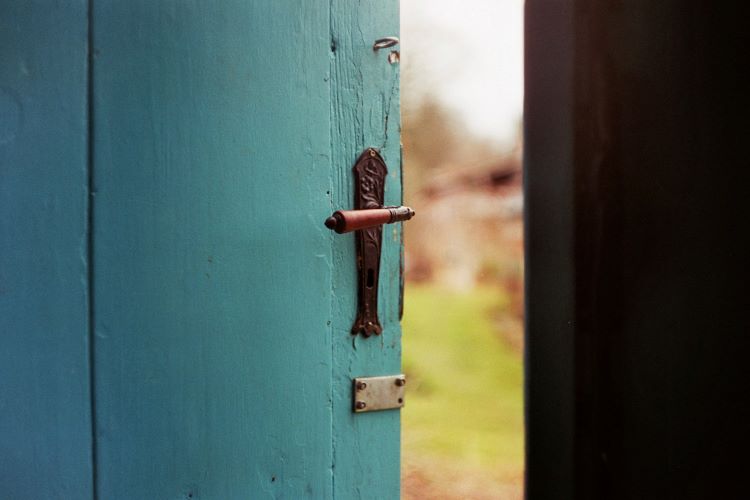Drug & Alcohol Rehab Bristol & Near Bristol
Quick Links for help with addiction in Bristol and near Bristol
- Signs of alcohol addiction in Bristol
- What is Rehab In Bristol?
- How Long Does Alcohol Rehab in Bristol Last?
- What Happens in Alcohol Rehab in Bristol?
- Can I Detox At Home in Bristol?
- Can I Recover From Addiction in Bristol Without Professional Help?
- What Happens When I Arrive At Rehab in Bristol?
- What is Inpatient Addiction Treatment in Bristol?
- How Much Does Rehab in Bristol Cost?
- Styles of Treatment At Rehab in Bristol
- How Long Does Aftercare Last in Bristol?
Drug and alcohol addiction in Bristol or near Bristol is a chronic illness that, if left untreated, can cause debilitating consequences for all involved.
Not only does addiction wreak havoc on a person’s mental and physical health, but it also shatters the lives of family, friends and colleagues who can see their loved ones struggling.
This is why Rehab Recovery works with a multitude of centres to provide addiction drug and alcohol rehab Bristol.
Do you seek to begin a new life without drugs or alcohol in Bristol or near Bristol? Are you ready to take positive steps in your life to ensure you are no longer controlled by your addiction? If so then reach out to our team today.
What Impacts Can Drug and Alcohol Addictions Have on a Person in Bristol or near Bristol?

Abusing drugs and alcohol has both short and long-term effects on both your mental and physical health.
People who abuse drugs and alcohol on a long-term basis could end up with life-threatening consequences on their physical and mental health, which could put their lives at risk if not treated.
People with a severe drug or alcohol addiction are putting themselves at risk of developing a range of physical health conditions [1], including high blood pressure, heart disease, stroke, liver disease, cirrhosis [2], digestive problems, a wide range of cancers and a weakening of the immune system.
These factors contribute to the lower life expectancy of heavy alcohol and drug users – an average of 24-28 years less [3] than those not suffering from addiction, and indeed it is this kind of organ failure that has become a leading cause of death in alcoholics [4].
However, with the right support it is possible for these physical impacts to be mitigated and in some cases can even be reversed [5].
Drug and alcohol addiction also has a huge impact on your mental health. This is due to the significant impact alcohol and other substances can have on your brain. [6]
In fact, abusing alcohol and drugs on a regular basis puts you at more risk of developing depression, anxiety, paranoia and even schizophrenia [7].
The link between mental health conditions and drug and alcohol abuse is complex and tightly linked [8].
Those who suffer from mental health issues often turn to drugs and alcohol to cope with their addiction.
Likewise, those with a drug or alcohol addiction in Bristol or near Bristol often develop mental health conditions as a result of their addiction.
Above this, suffering from drugs and alcohol will also have a significant impact on your employment, your finances, and your social and family life.
Most people often find that the effects of addiction develop as a domino effect; once you struggle with one aspect of life, the rest of your life becomes more complicated.
For example, abusing drugs and alcohol makes it harder to hold down a job.
As a result of this, individuals struggle to handle their finances, which has a huge effect on their housing situation and therefore your family life, too.
What Impact Can Drug and Alcohol Addictions Have on Families in Bristol?

Abusing harmful substances in Bristol or near Bristol has a huge effect on your family life. As a result of your addiction, you will find yourself in conflict with your family more often.
They might disagree with your life choices and will want you to seek help for your addiction. The result of this addiction can lead to their own mental health crisis [9], including depression, anxiety and paranoia.
Likewise, family members might start to suffer financially from their loved one’s addiction.
This might come about by trying to support their loved one by paying for their treatment, paying for any medication or paying for their rent or mortgage if they are unable to do so as a result of their addiction issues.
Addiction has been known to have a huge effect on children in Bristol. A study carried out by Paediatric Clinics of North America [10] found that 1 in every 10 children living in America has grown up in a family with at least member dependent on substances.
A book titled ‘Drug Addiction and Families’ [11] stated that children with a parent dependent on drugs and other substances are three times more likely to be physically abused and are four times more likely to be neglected.
What Are the Signs That An Alcohol Addiction in Bristol or near Bristol?

There are a whole host of signs [12] that someone is suffering from an addiction issue in Bristol, some of which are more obvious than others.
These symptoms will range from mild and moderate to severe depending on a number of factors.
Also, whilst a significant number of people who drink heavily do not suffer from alcohol addiciton [13], it is worth noting that almost all alcoholics are heavy drinkers.
According to Drink Aware [14], there are three main signs that someone is suffering from an addiction issue, which are:
- A lack of control
- Making alcohol your number-one priority
- Mental and physical issues
There are also a number of other signs [15], including a lack of hygiene, financial issues, arguing with family and friends, drinking alone, avoiding social situations and an increase in tolerance to alcohol.
These signs are not universal, however, and everyone will react to addiction differently.
For example, a type one alcoholic will tend to display high harm avoidance, low novelty seeking and high reward dependence behaviour [16], whereas a type two alcoholic will usually display high novelty-seeking behaviour and early-onset displays of substance misuse and criminal behaviour [17].
On top of these classic signs, it is also worth considering that some people are more likely to be at risk of addiction [18] than others due to existing factors, such as an unstable childhood, early exposure to addictive substances, genetics, peer pressure and more.
Curiously, alcohol addiction has also been linked with a number of mineral deficiencies [19], namely in zinc, magnesium, iron and calcium, although this connection is not yet fully understood.
What is Drug & Alcohol Rehab Bristol?

Recovery in Bristol is the process of change through which people will overcome their addictive behaviour and improve their health [20], bringing achievement back to their lives.
Even people with severe substance use disorders can, with the right help, get their addiction under control.
Rehab Recovery offers access to drug and alcohol rehab programmes in Bristol. The duration of these programmes varies from ten days up to around twenty-eight days in length.
We also offer a number of long-term rehabilitation programmes for drug and alcohol addiction lasting up to six months in duration.
This provides you with an essential support network should the risk of relapse occur during your first year in recovery.
‘Mind, Mouth and Muscle’ are considered the three pillars of recovery [21] – which refers to having healthy mental health, a good diet and exercise.
Begin your recovery journey at a rehab in Bristol today by calling us on 0800 088 66 86
How Effective is Rehab in Bristol Treating Alcohol or Drug Addictions?
By attending drug and alcohol rehab, you will be putting yourself in the best possible position to recover from your addiction.
However, it is important to understand that relapse rates are high and that attending rehab in Bristol or throughout the rest of the UK is not a surefire way of recovering.
In fact, relapse rates are particularly high throughout the UK, even after attending detox programmes and addiction treatment plans.
One study found [22] that those who stayed in rehab for longer had a higher chance of recovering than those who only received treatment for a number of weeks.
In fact, those who received long-term treatment achieved an 84% success rate when it came to their long-term recovery from drug and alcohol addiction.
Do Rehabs Centres in Bristol Provide Gender-Specific Treatment?

Yes! Most rehab centres across Bristol offer gender-specific rehab treatment for both men and women.
Gender-specific treatment allows men and women the chance to gain access to their own, personalised and gender-specific rehab treatment plans.
This is highly important as there are a number of key differences between men and women and how addiction impacts their body and brain.
For example, women in Bristol may become addicted to drugs or alcohol for completely different reasons than men. Men and women will also react to different therapy techniques differently.
For example, women are typically better at communicating during group and one-to-one therapy than men are.
It is important to remember that men and women also have different hormones, and that rehab is a naturally emotional and turbulent time for most people.
For example, fluctuations in hormone levels during a female’s menstrual cycle will naturally have its own implications during the recovery process [23].
How Long Does Alcohol Rehab in Bristol Last?
Whilst recovery itself can take anywhere from five months to six years [24] by most estimates, a stay at a drug and alcohol rehab in Bristol will usually last for around 28 days.
This will consist of a detox along with a range of additional therapies and treatments.
If your addiction is more severe, then you might need to stay in rehab for 60 to 90 days, depending on how well you react to your treatment.
Most people will then go on to receive aftercare and outpatient support for a number of months or even sometimes years after attending inpatient rehab treatment.
What Type of Addictions Are Treated At Drug & Alcohol Rehab Bristol?

Alcohol and drug rehab helps with addictions such as substance use disorder, alcohol addiction, binge drinking, benzodiazepine addiction, Buprenorphine addiction, cannabis use disorder, cocaine addiction, opioid use disorder or cocaine dependence, crack cocaine, heroin addiction, ketamine addiction, or behavioural addictions such as a gambling addiction.
If this is the case, why not contact Rehab Recovery today to discover how we are able to help?
Take back control of your life with the help of a drug and alcohol rehab in Bristol – call us on 0800 088 66 86
Addiction Statistics in Bristol
Drug Addiction Statistics in Bristol
Between the ages of 16 and 59, it’s believed that one in every eleven adults has taken and tried at least 1 form of addictive drug [25] in the last year in the UK.
This number increases when you take a look into the younger age demographic (between the ages of 16 and 24) with 1 in every 5 individuals consuming at least one drug in the past 12 months.
These statistics include a whole host of drugs from cannabis, cocaine, heroin and opioids. All drugs range across classifications, such as Class A, Class B and Class C.
However, recent data from the ONS [26] highlights that across the UK approximately 3.4% of all adults have consumed a Class A drug over the past 12 months.
It’s important to remember that if you are found with a Class A drug, then you may be fined or prosecuted.
Class A drugs are considered the most harmful to your mind and body.
Again, younger people are reported to have consumed the most drugs, with approximately 7.4% of all 16-24-year-olds having admitted to consuming a Class A drug in the past 12 months.
Some people might argue that these statistics are so high because they include one-off occasions, where someone might try a drug at a party or event just once, and then never touch it again.
However, this is not the case. According to the ONS [9] 2.1% of all adults aged 16 – 59 admit to consuming drugs on a frequent basis. When you look at the same statistic for a younger demographic aged between 16 and 24, this increases to 4.3%.
Start fighting your drug addiction with the help of a rehab in Bristol by calling us on 0800 088 66 86
What is Alcohol Addiction?

If you’re struggling with an addiction to alcohol in the Bristol area, then it’s important that you understand the statistics around alcohol addiction, so that you know you are not alone.
In fact, across the world every year, approximately 3 million people die from alcohol abuse [27].
Additionally, between 2018 and 2019, approximately 358,000 people were admitted to the hospital due to an addiction to alcohol.
Stereotypically, it’s young people who consume and abuse the most alcohol.
However, this is simply not the case. In fact, research into alcohol abuse by the NHS shows that people aged between 55 and 64 were the ones who consumed the most alcohol on a weekly basis.
The NHS advises [28] that regularly drinking more than 14 units of alcohol will damage your health.
These statistics are increasingly worrying, as more and more people are also becoming more experimental with drugs.
If you’re addicted to drugs or alcohol, then it’s important to get help from professionals as soon as you possibly can.
At Rehab Recovery, you can speak to a member of our team anytime to get the very best treatment advice so that you do not become just another one of these shocking and worrying statistics.
Start your recovery journey at a rehab in Bristol by calling us on 0800 088 66 86
What Happens in Alcohol Rehab in Bristol?

There are many different ways of treating alcohol addiction [29], each of them based on evidence-backed procedures to help break the nature of addiction.
Upon entering a drug and alcohol rehab centre in Bristol, you will first be assessed by a team of professionals.
Once this is complete, you will enter the detox phase of your treatment, which will involve withdrawing from the addictive substance.
This will usually last approximately 10 days [30], although this does depend on the severity of your addiction.
Once you have successfully completed your withdrawal and detox, you will then move on to the therapy side of your treatment.
Usually, this will last a number of weeks and involves a range of therapy techniques, from cognitive behavioural therapy to motivational interviewing to family and group therapy.
Remember, not all types of therapy will work for you. You should spend the first few days of this stage of your treatment figuring out what approach works for you and what does not.
As discussed, you will spend a number of weeks in therapy.
Although therapy is one of the most challenging parts of anyone’s rehab treatment, it is by far the most rewarding, too.
You will discover new things about yourself and delve into any trauma or triggers which have led you to where you are today.
Once this is complete, a big chunk of your remaining time in rehab will be spent working on an aftercare plan.
This aftercare plan will come home with you and will contain all the tips, tricks and tools you learned during your time in rehab.
This aftercare and support plan will also contain any helplines you might need should you feel tempted to relapse, as well as some techniques such as the HALT technique [31].
During your time in rehab, your mornings will be spent in therapy. Usually, you will have an hour or two of therapy followed by some activities or holistic therapy.
Once this is complete, you will have your lunch cooked for you and will spend the afternoon in self-reflection.
Phones usually aren’t permitted during rehab, so you will spend a lot of your time thinking and reflecting upon your progress and sobriety.
What Are the Benefits of Alcohol Rehab in Bristol?

There are numerous benefits associated with attending alcohol rehab in Bristol. For example, you will gain access to a detox, medication and therapy that you wouldn’t be able to gain access to elsewhere.
You also benefit from accountability, which will help to keep your recovery on track. Not only will you be accountable to your doctors and therapists, but to other patients within the rehab facility, too.
Likewise, you will also receive support from your peers, which will encourage and motivate you to stay on track.
You will also receive education on addiction and its effects as part of your treatment. You will be given information on the effects of addiction, as well as how addiction works and impacts your life.
By informing you on the ins and outs of addiction, you will be in a better position to recover.
Should I Go to Alcohol Rehab or AA in Bristol?
Lots of people get confused about the differences between going to an AA meeting [32] and attending rehab treatment.
Alcoholics Anonymous is not a professional rehab treatment. Alcoholics Anonymous, whilst extremely effective, is simply an aftercare and support group that will guide you through living a sober life after leaving rehab treatment.
If you are suffering from a mental or physical addiction in Bristol or throughout the rest of the UK, then you must attend a drug and alcohol rehab centre in order to detox and withdraw.
If you would like more information on Alcoholics Anonymous and how this differs from rehab in Bristol and throughout the rest of the UK, then talk to your local GP or to a member of our team at Rehab Recovery.
Can I Do An Alcohol Detox At Home in Bristol?
It is not recommended to attempt to detox from alcohol at home. This is because withdrawing from alcohol can be extremely dangerous, especially if you are not being monitored by medical professionals.
During your detox, you will experience a range of withdrawal symptoms from seizures to excessive sweating, an increased heart rate, nightmares, insomnia and anxiety.
These withdrawal symptoms can escalate quickly and by ignoring them, you could be putting your life at risk.
During your alcohol detox, you should be monitored around the clock and be prescribed detox withdrawal medication, such as Librium, Acamprosate [33] or Naltrexone [34] should you need it.
You might also be given medication to limit the psychological effects of detox [35] – such as SSRIs to limit the impact of anxiety – although these will only be issued if they do not interfere with any other detox medication.
Only those with very mild addiction issues are allowed to complete a home detox, although they must be assessed by a qualified doctor first.
A home detox usually involves daily phone calls from doctors to ensure that you are coping and medication through the post.
What Percentage of Alcoholics Recover in Bristol?

A study carried out by the National Institute on Alcohol Abuse and Alcoholism [36] found that 1 in every 3 individuals who received sufficient treatment for their addiction issues were still in recovery one year later.
Of those who surpassed the one-year mark, 18.2% were still in recovery, and 17.7% were classified as low-risk drinkers.
Unfortunately, 25% were still dependent on alcohol and 27.3% were in partial remission.
It is important to remember that even after you recover from addiction and leave your rehab centre, you must continue to work on your recovery and sobriety for months or even sometimes years afterwards.
Unfortunately, a large portion of those who do recover go on to relapse at some point during their lives and have to attend rehab treatment all over again.
Acamprosate is a medicine that can help you avoid cravings, and prevent relapse.
This medication will help the chemicals in your body to be repaired and return to normal levels.
The Disease Model of Addiction at Rehab in Bristol or near Bristol

The Disease Model of Addiction highlights that addiction stems from within the individual suffering. It suggests that addiction is a disease and an illness which means that it is not the individual’s fault that they are addicted.
It suggests that if you’re struggling with an addiction, then you are not capable of controlling your intake of the substance in question.
The Disease Model of Addiction also suggests that addiction is irreversible. It cannot be cured [37], but by detoxing and withdrawing from the drug you can place it in a manageable status for the rest of your life.
By using the Disease Model of Addiction, addiction turns itself into a health issue, rather than a moral or legal one.
Addiction is not considered a ‘choice’ or ‘moral failing’ on behalf of the addiction sufferer – rehab is about treating the disease of addiction.
It also helps individuals suffering from addiction understand that it’s a disease, rather than simply blaming themselves or their actions. In doing so it helps to remove the shame that is often associated with addiction.
It also simplifies the addiction treatment options, highlighting that abstinence is the best approach to recovery.
This is because simply limiting the intake of your addictive substance [38] will not be enough to avoid relapse – instead, abstinence will give you the best chance of keeping addiction in check for the rest of your life.
You can read more about the disease of addiction here [39].
To learn more about how this approach can inform effective addiction treatment in Bristol, call us on 0800 088 66 86
Will Rehab in Bristol Cure Me of My Addiction?
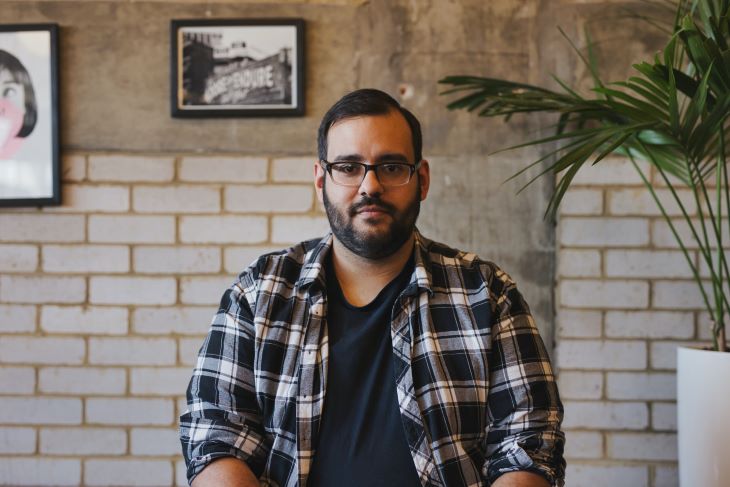
As discussed above, attending drug and alcohol rehab in Bristol or throughout the rest of the UK makes your recovery a lot more likely. However, there is no guarantee that attending rehab will cure your addiction.
In fact, there is no fast-track cure to addiction.
The only way individuals are able to recover from addiction issues is if they remain dedicated and motivated throughout their treatment plan.
Research suggests that it takes six months to five years for a person to truly overcome their addiction.
If you want to understand more about your addiction and what it takes to recover, then speak to your local GP or to a member of our team at Rehab Recovery.
Does Drug and Alcohol Rehab in Bristol or near Bristol for Teens Work?
Addiction is a disease that can strike anyone, from older people [40] to even children, and teens are no exception.
Attending drug and alcohol rehab as a teenager can be incredibly rewarding and effective. Addiction in teenagers can be worrying for any parent.
Being a teenager can be tricky at the best of times, but coupling this with addiction can create additional complications.
During your teenage years, the human brain is still forming and adapting. By consuming excessive amounts of drugs and alcohol at this time, you could be doing significant damage to your body and brain.
This could result in long-term mental health issues which stay with you as an adult, or developmental issues.
There are no significant differences between teenage rehab treatment and adult rehab treatment, although each treatment plan will be personalised to each individual.
The main difference is that all teenagers will attend a teenage-only rehab centre, so they won’t be mixing with adult patients.
Teenagers will receive a range of treatments, including CRAFT therapy, cognitive behavioural therapy, family therapy and much more.
What Happens If I Don’t Get Help?

If you don’t get help for your addiction, then your addictions and symptoms will only get worse and you could end up putting your life at risk. By ignoring your addiction, your mental and physical health will get worse.
You could put yourself at risk of developing a serious mental health condition, such as depression or anxiety.
Dealing with these mental health issues over a prolonged period of time can have a serious impact on your life, which could put you at risk of developing suicidal thoughts.
Your physical health will also get worse, and avoiding seeking help for your addiction could mean that you suffer from a range of life-threatening conditions and diseases such as lung disease, heart disease and hepatitis.
Can I Recover From Addiction in Bristol Without Professional Help?
Whilst it is possible to recover on your own from an addiction, it is not recommended. As discussed above, recovering on your own, without any professional help, can be incredibly challenging.
If you are addicted to a physically addictive substance, such as alcohol or cocaine, then you will have to undergo a detox in order to overcome your physical dependence on the substance.
This can be difficult to deal with on your own, as your withdrawal symptoms can become severe.
If you’re severely addicted to a substance, then the chances are that your withdrawal symptoms will be severe.
If this is the case, then you will require medical assistance. Without doing so, you could be putting your life at risk.
Why Should You Avoid Recovering on Your Own?

Recovering from an addiction to drugs or alcohol can be incredibly stressful and challenging.
Not only will you have to withdraw from taking the addictive substance, but you will also have to undergo therapy, which will be incredibly challenging and tiring.
During your therapy, you might discover things about yourself, your family, your friends, your mind and your childhood that you hadn’t realised before.
This can be an incredibly challenging and eye-opening experience.
This is why most healthcare professionals who work in the recovery industry will always advise that you avoid recovering on your own.
It is always best to recover within a rehab facility, whether that be inpatient or outpatient treatment.
Can I Force my Loved One to go to Rehab in Bristol?
No, you can never force anyone to attend drug and alcohol rehab in Bristol or throughout the rest of the UK unless they want to.
The only way an individual is able to successfully recover from an addiction is by being motivated and dedicated to their recovery plan. Legally, no friend, family member or employer has any right to force you to attend rehab.
If you are aged under 18, then a parent can make the decision for you, but they are still unable to force a child to engage in the treatment process unless they want to.
Unfortunately, if someone does not want to recover then they most likely won’t.
The best way to get your loved one to see sense and to seek treatment themselves is to hold an intervention. An intervention is a planned meeting, where you discuss your concerns and lay out treatment plans.
How Do I Prepare for Addiction Rehab in Bristol?

Admitting that you needed to attend drug and alcohol rehab in Bristol is one thing, but feeling prepared for your admission is another thing altogether.
It is important to prepare yourself for rehab so that you know what to expect and so that you get the most of it.
You should aim to take care of any obligation you might have, like work or looking after any elderly parents or children.
Make sure that your finances are all taken care of and that those who need to know where you are well informed.
Make sure that you pack everything you will need for your stay.
For example, you should pack some comfy clothes, some nice PJs and some photos of family or friends.
Make sure that you only pack the essentials, as anything else could be a distraction.
How Do I Tell My Family I’m Going to a Drug & Alcohol Rehab in Bristol or near Bristol?
It is always best to be open and honest with your family about needing to attend rehab in Bristol.
You need to start by being honest with them, about how long you have been addicted to drugs or alcohol, how severe your addiction is and what type of treatment you need in order to recover.
It is important to provide the reasons why you need treatment, as they might not always understand why you need treatment in the first place, or how severe your addiction is.
It’s also important to remember that you don’t have to tell people unless you really want to.
Not everyone needs to know that you’re attending rehab.
You should also explain how you will keep in contact during your time in rehab, which will usually be limited to letters or the odd email during your stint in rehab.
Each rehab centre has different policies on this, so you should check this before being admitted.
Do I Have to Tell My Boss About Alcohol Rehab in Bristol or near Bristol?

If you are still holding down a job whilst suffering from an addiction issue, then you might feel anxious about telling your employer that you need to attend drug and alcohol rehab in Bristol.
However, telling your employer the truth can take a real weight off and can make you feel much better.
From a legal standpoint, your boss is not able to fire you for having an addiction issue or for attending rehab.
However, it’s only natural to feel nervous about telling them.
Start by being as open and honest about your addiction as you can. You should also tell them what your treatment plans are and how long your treatment should take.
Try to have this conversation in a closed-off meeting room, with only those who need to know present.
If you have a HR department, then also invite them to this meeting for extra support and guidance on how your employer might be able to support you once you return from rehab in Bristol.
Can I Lose My Job If I Leave to Go to Rehab in Bristol?

Companies across the UK are not legally required to have a specific policy for drug and alcohol abuse or addiction and they are also not legally obligated to pay for your treatment.
However, employment protection law does state that employers have to treat addiction as a form of sickness, meaning that they can’t sack or discriminate against you if you need to attend rehab in Bristol or throughout the rest of the UK.
The Health and Safety Executive has a list of warning signs [42] to look out for if you suspect that your employee is suffering from an addiction issue.
If you are concerned that you might lose your job by telling your employer that you need to attend drug and alcohol rehab in Bristol, then talk to your HR department, Citizens Advice or to a member of our team at Rehab Recovery.
What Happens When I Arrive At Rehab in Bristol?
When you attend inpatient drug and alcohol rehab in Bristol, expect to be supervised around the clock by a team of professionals. Upon admission to rehab, you will be assessed by doctors, both physically and mentally.
Once you have been assessed by professionals, you will then enter your detoxification and withdrawal. This will involve slowly withdrawing from the addictive substance until you start to experience withdrawal symptoms.
These symptoms can be highly unpleasant and will last a number of days. However, once these withdrawal symptoms stop your body will no longer be dependent on the addictive substances that once held you back.
Once your detox is complete, you will then move on to therapy. Therapy is a huge part of anyone’s rehab process and will usually last a number of weeks.
You will receive a range of therapy techniques, including motivational interviewing, holistic therapy, cognitive behavioural therapy and group or family therapy.
Towards the end of your therapy treatment, you will be asked to focus on your relapse prevention plan, which will support you once you leave the rehab centre and re-enter day-to-day life.
What Happens in the 28-Day Rehabilitation Treatment Programme in Bristol?
Most rehab treatment plans last around 28 days, as this is typically enough time to undergo a detox and then receive sufficient therapy treatment for the psychological side of your addiction.
Your 28-day rehabilitation treatment programme will consist of four distinct stages, including an intake evaluation, a detox, individual and group therapy and finally an aftercare plan.
For some individuals with a mild to moderate addiction, this is enough time to recover. If your addiction is more severe, then you might need longer.
Will I Be Able to See My Family During Rehab in Bristol?

This depends on the rehab centre you choose and what their policies are when it comes to visits.
Some rehab facilities allow individuals to have visitors on a weekly basis, depending on how long their treatment plan is.
Other rehab centres have a strict ‘no visitors’ policy, which means that you will be limited to no visitors during your time in rehab and might not be able to communicate with them on a regular basis.
If you are permitted to have visitors, then you must think carefully about who you want to visit.
Some friends or family members could be bad influences and it is important that any visits are positive and motivational, rather than discouraging and triggering.
Will My Rehab Programme in Bristol Be Confidential?
Naturally, confidentiality is one of the most important things to those attending drug and alcohol rehab in Bristol.
This is because your addiction and mental health issues are sensitive.
This is why everything discussed within a rehab centre will be kept highly confidential.
There are also a number of things that you can do to ensure that your stay in a rehab centre is kept as confidential as possible.
For example, you should stay in a rehab centre away from your local area, you should also try to use your holiday allowance at work to avoid any speculation and should ensure that there are no cameras used within the rehab centre.
Can I Leave Rehab At Any Time?
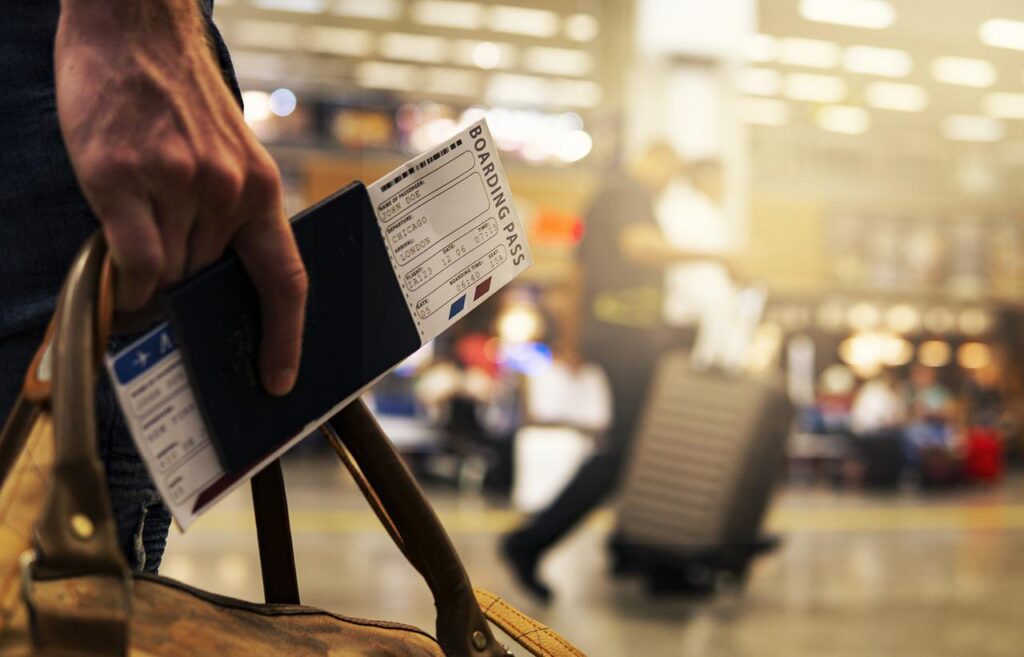
Yes, you are able to discharge yourself from a rehab centre before your treatment plan has ended. However, this is not advised.
Despite this, a significant percentage of people who attend rehab in Bristol and throughout the rest of the UK leave before they are supposed to.
According to the Substance Abuse and Mental Health Services Foundation (SAMHSA) [41] approximately 17% of all individuals (on average) leave rehab before they are supposed to.
Leaving rehab treatment early is not recommended, as this can significantly stunt an individual’s progression and recovery.
There are a number of factors which predict whether someone will discharge themself from rehab early, including their age, whether or not they have insurance for their treatment, their gender, what substance they are addicted to and their socioeconomic status.
What If I Suffer From Multiple Conditions Alongside Addiction?

Addiction and mental health issues often co-occur due to the way that addictive substances impact the brain [43].
If you suffer from an addiction whilst also suffering from a mental health issue, then you will be diagnosed with a dual diagnosis.
Borderline personality disorder and anti-social personality disorder [44] are the two mental health conditions most often associated with addiction, particularly alcohol addiction [45].
You will receive a psychiatric assessment from a qualified psychiatrist who will assess what type of treatment you could need.
Often, many people who develop an addiction develop the addiction as a consequence of an underlying mental health issue, such as:
- Depression
- Bipolar disorder
- Codependency
- Eating disorders
- Obsessive-compulsive disorder
- Post-traumatic stress disorder (PTSD)
- Schizophrenia
- Anxiety
Sometimes, mental health disorders might come as a result of an addiction. It’s therefore sometimes really hard to tell which comes first.
By attending a drug and alcohol rehab in Bristol, you’ll be safe in the knowledge that if you suffer from an addiction and a mental health disorder, then you will be diagnosed and treated for both.
You will receive a detox treatment to rid your body of the addictive substance, and later therapy and possibly appropriate medication [46] to treat the mental health disorder.
Forms of therapy for mental health disorders include proven, evidence-based treatments such as CBT, which has displayed extremely high success rates [47] in treating both addiction and other mental health disorders.
To learn more about how a drug and alcohol rehab in Bristol will help support your mental health, call us today on 0800 088 66 86
Abstinence at Drug and Alcohol Rehab in Bristol

The majority of experts have agreed [48] that abstinence is always the safer and more effective route to addiction recovery.
It’s very important to remember and acknowledge that the aim of rehab is to achieve abstinence, and not to simply lessen the negative consequences or reduce your consumption levels.
That’s why a lot of your time at rehab will be focused on achieving complete abstinence so that you can fully overcome your addiction.
For many people, simply reducing their intake of the addictive substance is simply not enough, and by doing so they will continue doing harm to themselves and their bodies.
Abstinence will bring you a whole host of benefits, including better sleep, better memory, less confusion and better overall physical and mental health.
To find out how rehab in Bristol can help you achieve and maintain abstinence, call our team today on 0800 088 66 86
What is Inpatient Addiction Treatment in Bristol?

If you’re struggling with a drug or alcohol addiction, then you should attend rehab in Bristol.
By attending residential rehab, you will receive a whole host of benefits. For what will probably be the first time in a while, you will be putting yourself and your health first.
Here is a list of just some of these life-changing benefits.
Consistent Care and Support in Bristol
Whilst at residential rehab in Bristol, you will receive the clock, consistent care and support from medical and healthcare professionals.
No More Temptations
By attending residential rehab, you will be removing yourself from your immediate surroundings and as a result of this, your temptations too. These temptations include seeing certain friends or family members, going to certain places or being face to face with the addictive substance.
Time to Recover and Reflect
By attending residential rehab in the Bristol area, you will be allowing yourself and giving yourself the time to recover from your addiction and reflect on the past, present and future. You will be given the time to prioritise yourself both physically and mentally.
Positive and Motivating Environment
Residential rehab also gives you a positive and motivating environment to recover in, being surrounded by people who understand and want to help. Thanks to its key role in building up confidence and the drive to stay sober, motivation is considered by many to be a vital part of successful addiction recovery [49].
Receive the Very Best Treatment in Bristol
Additionally, by attending residential drug and alcohol rehab in Bristol, you will be receiving top-of-the-range, specialist treatment.
These treatment options include CBT, motivational interviewing, private therapy, group therapy and many more options.
If you think that residential drug and alcohol rehab in Bristol is the right choice for you, call us today on 0800 088 66 86
Residential Alcohol Rehab Vs. Outpatient. Which is Better?

There are two types of rehab across Bristol and the rest of the UK, namely residential and outpatient rehab.
If you are struggling with an addiction issue, then it might be difficult to know which type of rehab is best suited to you.
Residential rehab, also known as inpatient rehab, is a type of rehab suited to those with more severe, long term addictions.
During residential rehab, you will temporarily move into a rehab facility, where you will eat and sleep within the rehab centre for a number of weeks where you will receive all of your treatment.
Outpatient rehab works differently.
You get to remain living at home for starters and get to visit the rehab facility on a weekly or even sometimes daily basis.
This is where you will receive your therapy treatment.
Residential rehab is best suited to those who have been suffering from their addiction for a while and would benefit from being removed from their home environment during their recovery.
Outpatient rehab is better suited to those with a mild addiction who still have commitments at home, such as work or children.
It is important to understand that if you need to undergo a detox, then it is best to attend inpatient rehab, as you will benefit from a safe and secure medical environment.
Is Addiction Treatment Accessible Through the NHS in Bristol?

Despite confusion across the country, ‘NHS’ rehab does not exist in the UK. The NHS simply cannot afford to offer free residential treatment [50] to those suffering from an addiction,
Instead, the NHS reserves certain spaces and beds at private rehab centres in Bristol for those who cannot pay to receive the treatment themselves.
1. Pros of Private Rehab in Bristol
There are many pros to attending private rehab. Firstly, there are no long waiting lists and you will likely be admitted into the private rehab centre in the first few days. Additionally, you will receive the best treatment options from the most experienced healthcare professionals.
You will also receive a relapse prevention plan, as well as be able to receive treatment for up to 12 months after you are released.
2. Cons of Private Rehab in Bristol
There are only a few cons to attending private rehab in Bristol. The biggest of these cons is that it is expensive. Additionally, if you are paying to attend rehab then you will become overwhelmed weighing up the pros and cons of each rehab centre, wanting the very best for your money.
3. Pros of NHS Rehab in Bristol
By attending rehab funded by the NHS, you will also attend many of the same rehab centres as people paying to go privately. However, you will not have to pay for your treatment and time there.
Additionally, you will also most likely be placed in a local rehab centre in Bristol, close to friends and families.
4. Cons of NHS Rehab in Bristol
Unfortunately, there is a long list of cons and negatives to attending rehab in Bristol that is funded by the NHS. The first is that the waiting list is extremely long [51], and will have people waiting up to months to receive treatment.
You are also more likely to receive less one-to-one therapy time with a specialist, as well as being treated separately for any mental health conditions.
For advice and guidance choosing between prvate and NHS rehab in Bristol, give our expert team a call on 0800 088 66 86
Why Residential Rehab in Bristol is NOT for Everyone

Although there are lots of benefits to attending residential rehab in Bristol, it is simply not suitable or accessible for everyone.
For example, the below list is used to determine if someone is deemed suitable for residential rehab or not.
- If you’ve ever had suicidal thoughts before
- If you drink more than 30 units of alcohol every day in Bristol
- If you’ve tried but failed to recover in the past
- If you’ve ever suffered from Wernicke Korsakoff Syndrome [52]
- If you’ve ever suffered from delirium tremens or other seizures
- If you’ve ever been violent whilst on their addictive substance
- If you also suffer from a mental health condition
- If you would struggle to detox or recover at home
According to the DSM-IV-TR diagnostic criteria [53], you will also have to be assessed for residential rehab if you:
- Continue to abuse the drug even though you are aware of the harm it’s causing
- If you have a high tolerance
- If you have continued to abuse and consume the drug for an extended period of time to avoid withdrawal symptoms
- If you continually cancel your plans or commitments due to the drug or substance
Still unsure about whether a residential rehab in Bristol is the right choice for you? Call us today on 0800 088 66 86
Is Rehab My Only Option in Bristol?

Professionally supported drug and alcohol rehab is one of the best ways to recover from addiction, however it isn’t always the right choice for an individual.
Below we have listed some of the more common alternatives should you wish to not attend a residential rehab clinic in Bristol.
Is Detox With No Rehab Possible in Bristol?
Home detox is a great alternative to attending rehab in Bristol. You will receive medical help through the post, as well as daily phone calls from a healthcare professional.
What is Smart Recovery?
SMART meetings are also a great alternative to rehab, and you will receive help with your motivation, cravings, negative emotions, triggers and long-term recovery plan.
Al-Anon Family Group Meetings in Bristol
Group family meetings are another form of help without attending rehab. By bringing your family along to the meetings, they will be able to gain a better understanding of what you’re going through and be able to help and support you better at home.
What is Alcoholics Anonymous?
If SMART meetings are not for you, then you might want to consider Alcoholics Anonymous.
These are dedicated twelve-step meetings for alcohol sufferers where you can receive and give support to others in your situation.
What is Narcotics Anonymous?
Narcotics Anonymous offers similar help, support and advice for drug addictions.
The 12 steps follow the principle of giving yourself over to a higher power in order to help you stay sober.
What is Outpatient Addiction Treatment in Bristol?
Outpatient treatment is also another alternative to residential rehab, and your local drug and alcohol addiction team in Bristol will help you overcome your addiction whilst still living your usual, daily life.
To access any of these excellent alternative addiction treatments in Bristol, call our team today on 0800 088 66 86
What is the Admissions Process for Our Rehabilitation Centre in Bristol?

Rehab Recovery is here to help when it comes to the admissions process for drug or alcohol rehab in the Bristol area.
The ASAM criteria [54] has a list of criteria factors that they use to assess someone who wants to be admitted into rehab.
These dimensions are as follows:
Dimension 1 – Detox Potential
It’s important for healthcare professionals to understand how likely it is that you will be able to complete a detox programme, whilst also figuring out what kind of treatment you want.
Dimension 2 – Health & Wellbeing
Your health and well-being also need to be assessed before attending rehab, as healthcare professionals will assess both when deciding whether or not you should be admitted into rehab, and which centre and type of treatment would suit you best.
Dimension 3 – Psychological Wellbeing
You will also be assessed psychologically before entering a rehab centre.
Dimension 4 – How Committed You Are
In order to recover successfully at a rehab centre, it is important that you are committed to recovering. This will be assessed throughout the admissions process.
Dimension 5 – Relapsing
Healthcare professionals will also assess whether or not you’ve ever relapsed in the past, as this will likely inform what kind of treatment will and won’t work this time around.
Dimension 6 – Environment and Triggers at Home
Professionals will also try and assess what your home life looks like, and whether or not you are exposed to triggers at home.
The team will use these six dimensions to assess whether you have a mild, moderate or severe addiction.
If you have a mild addiction, then you will likely resonate with two or three of the above dimensions. If you resonate with four or five of them, then your addiction is moderate. However, if it’s five or more, then it’s believed that your addiction is severe.
Begin the admissions process to enter a drug and alcohol rehab in Bristol today by calling our team on 0800 088 66 86
Alcohol Use Disorders Identification Test (AUDIT)

The AUDIT test [55] is used frequently throughout the admissions process by professionals. [20].
It consists of a total of 10 questions about your dependency on the drug, the consequences of your abuse and how you abuse the drug.
Below are the 10 AUDIT questions used.
- How many units do you usually drink every week?
- Have you ever injured yourself or someone else whilst intoxicated in Bristol?
- How many times do you drink more than 6 units of alcohol if you’re a woman, and 8 units of alcohol if you’re a man?
- Has anyone (like a professional, doctor, friend or family member) ever told you that they are worried about your substance abuse?
- How many times in the last year have you struggled or failed to stop abusing the substance?
- How often have you regretted drinking in the last year?
- How often have you cancelled plans or activities due to your addiction?
- How many times do you struggle to remember the night before?
- How often over the last 12 months have you craved a drink in the morning?
You are able to answer the following ways:
- Never
- Monthly or less
- 2 – 4 times a month
- 2 – 3 times a week
- 4 or more times a week
These answers are scored and added up. If you score 13 points or more, then it would be advised that you are dependent on an addictive substance.
If the AUDIT has made you wonder about your own need for alcohol rehabilitation in Bristol, call our team on 0800 088 66 86
How Can I Convince a Loved One to Receive Drug and Alcohol Rehab in Bristol?

Firstly, it’s important that people understand exactly what an intervention is.
An intervention is essentially a planned meeting, where loved ones sit down with their friend or family member who’s struggling with addiction and talk to them about their concern in a calm and collected manner.
During this meeting, loved ones are given the opportunity to voice their concerns and worries about their addiction, and offer some treatment options and advice.
It’s also a good idea to involve an intervention specialist so that they can inform you of the best way to approach the situation [56].
They’ll advise you on where to hold the meeting, who to bring with you and what to say. They’ll even offer to sit in on the intervention with you.
If you’re hoping to hold an intervention for a loved one who’s struggling with an addiction, then you might want to consult CRAFT [57].
CRAFT stands for Community Reinforcement And Family Training, which aims to equip families and friends with tips, tools and strategies on how to approach an intervention.
For help and guidance conducting a professional intervention in order to convince a loved one to attend addiction treatment in Bristol, call our team on 0800 088 66 86
How Much Does Rehab in Bristol Cost?

If you want to attend a rehab centre in the Bristol area, then you need to educate yourself on the associated costs that come with attending rehab.
Firstly, the cost of rehab differs drastically depending on which centre you choose, as well as how long you want to stay for and if you want a private or shared room.
For example, a 10-day treatment programme in a single, private room costs approximately £3,000 – £6,000. However, a shared room for the same period of time costs anywhere between £2,000 – £4,000.
However, a 28-day stay in a rehab centre costs a bit more. For example, a private room costs approximately £8,000 – £10,000. A shared room is slightly cheaper, costing approximately £6,000.
For those who cannot afford this, you should consider attending a home detox where you will receive some level of care and treatment from healthcare professionals. This costs approximately £1,500.
For a more accurate answer to how much your time at rehab in Bristol will cost, call our team on 0800 088 66 86
Tips on How to Choose the Right Drug and Alcohol Rehab in Bristol

If you’re looking to attend rehab for a drug or alcohol addiction in the Bristol area, then read the below tips on how to choose the right centre for you.
- Always try and find a rehab centre that has been open for a while, and has good testimonials and reviews
- Try and speak to your doctor about which rehab centre is best, as they might be able to recommend the best in the area
- Have a good think about whether or not you want to attend a local rehab centre not
- Take into account the costs and affordability
- Ask to speak to the team to see if they suit your personality
- Ask about the specific treatment options they offer
Do I Need a Detox Programme/Alcohol Withdrawal Treatment?

Detox is when someone who is suffering from an addiction to drugs or alcohol abstains from consuming the drug in order to rid the substance from their body.
If you’re addicted to an addictive substance in the Bristol area, then it is likely that you will be asked to complete detox from the substance before you receive any other form of therapy in rehab.
Rehab is important for alcohol addiction, as the consequences include delirium tremens and Wernicke encephalopathy.
Detoxing and withdrawing from most addictive substances bring with it a whole host of nasty and unpleasant withdrawal symptoms, which if unmanaged, can lead to complications and be potentially life-threatening like seizures.
These symptoms include getting seizures, shakes, nausea, anxiety, paranoia, severe agitation and struggling to sleep.
This is why just quitting cold turkey is rarely a viable option, as it can lead to extremely harmful consequences and even death [58].
This is why if you are planning on detoxing, then you must detox in a rehab centre where it is safe.
At a rehab centre, you will also be surrounded by healthcare professionals, who might prescribe you medication such as Chlordiazepoxide (brand name Librium) to help you overcome your alcohol detox and medically-assisted detox.
Librium helps to calm the alcohol withdrawal symptoms or alcohol withdrawal syndrome symptoms caused by withdrawing, and it is often used to help people with depression and anxiety.
Learn more about detox at rehab in Bristol – call our team on 0800 088 66 86
What Happens During Detox?

During a detox, you will withdraw from the addictive substance slowly, under medical supervision. You will detox over a period of 10 – 28 days and will experience a whole host of unpleasant and challenging withdrawal symptoms.
Unfortunately, these are impossible to avoid and are simply part of the withdrawal and recovery process.
Withdrawal symptoms range in severity [59], and usually include things such as excessive sweating, headaches, nausea, nightmares, paranoia and depression.
Usually, the more severe your addiction is, the more severe your withdrawal symptoms will be.
During your detox, you will benefit from support from a range of doctors and specialists, including a therapist and a doctor who can prescribe you with medication should you require it.
What is a Medically Assisted Drug or Alcohol Detox?

During detox, a person can experience a number of withdrawal symptoms that can range from uncomfortable to dangerous or even life-threatening.
For this reason, it is highly beneficial for a person to go through a medically assisted detox.
You will be monitored throughout the process, and a doctor can prescribe any medications that could help them be more comfortable and safer.
A medically assisted detox is typically the only safe way a person with an addiction can go through detox.
How Long Does a Detox Last in Bristol?
It usually takes most people around 10 days to physically detox from a substance, although most people are required to stay in their withdrawal and detox for longer than this.
Some people end up staying in rehab for up to two weeks, depending on the severity of their addiction.
There are many factors which come into play which will determine how long someone stays in rehab, including what substances have been abused and how long the individual has been suffering.
What Medications May Be Prescribed During Rehab in Bristol?
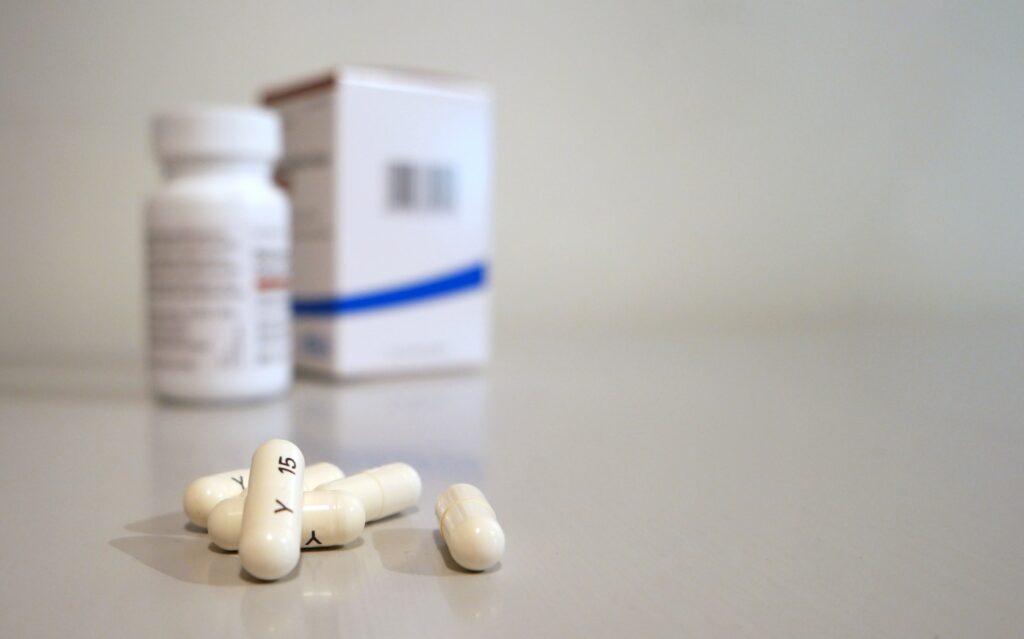
There are a range of medications which are frequently prescribed to individuals during their rehab treatment. Some of the most popular medications include:
- Naltrexone
- Suboxone
- Buprenorphine
- Methadone
- Disulfiram or Antabuse
- Acamprosate
- Vivitrol
- Topiramate
- Neurontin
- Sabril
- Librium
Cocaine Rehab in Bristol

Although cocaine is psychologically addictive, it’s important to understand that cocaine is not physically addictive.
Therefore, if you’re undergoing rehab for cocaine addiction in the Bristol area, then you do not need to undergo a physical detox.
At rehab, you will be given the opportunity to undergo a range of treatment options to help you overcome your cocaine addiction mentally.
Heroin Rehab in Bristol

Diversely, if you’re addicted to Heroin then you will need to undergo both a medical and psychological detox from heroin as it is both mentally and physically addictive.
After you’ve undergone your detox, you will receive treatment such as CBT, group and one-to-one therapy.
Heroin addiction results in serious heroin withdrawal symptoms so it is necessary to seek professional help in rehab. You will also be able to get help with the other effects, such as hepatitis.
Cannabis Rehab in Bristol

Rehab for cannabis consists of a lot of therapy. However, as heroin is not a physically addictive substance, you will not need to receive a physical detox.
Your therapy will consist of a range of types of therapies, including CBT, motivational interviewing, group therapy, family therapy and holistic therapy.
Begin your recovery journey at a drug rehab in Bristol today by calling us on 0800 088 66 86
Relapse Prevention Planning in Bristol

Whilst at rehab for a drug or alcohol addiction in the Bristol area, you will likely receive a relapse prevention plan.
A relapse prevention plan consists of a plan for when you leave your rehab centre, how best to spend your time and how to avoid any triggers.
Below are a few techniques that you can use throughout your relapse prevention plan.
1. HALT
HALT stands for hungry, angry, lonely, or tired. If you start to feel any of these four things, then resolve it before presuming that it’s a craving.
2. Self Care
Self-care is really important when it comes to your recovery and your relapse prevention plan. Practice self care regularly by meditating, eating well and exercising.
3. Meditation
Meditation is also a tried and proven way of relaxing when you start to struggle or crave a drug.
4. IOE
IOE stands for ‘In case of Emergency.’ It’s always good to have a person in mind who you can contact when you’re struggling with a craving or trigger.
How Do I Know When My Addiction is Something to Worry About?

There are a number of signs that indicate you are addicted to drugs or alcohol, which warrants the need for drug and alcohol rehab in Bristol.
Take a look at the list below to see if you match more than two of the characteristics, which gives a strong indication of addiction.
- Have stolen or cheated to get money to buy it
- Are obsessed with a particular substance
- Have driven while under the influence of it
- Get withdrawal symptoms
- Have tried to stop but failed
- Lie to others about your intake
- Have slipped in work or school because of it
- Need more of it to get high
- Keep a stash of it at all times
- Can see the damage it creates but can’t stop
If you suspect that you or a loved one is addicted to a substance from the signs above, it’s time to seek professional help. There’s no shame in asking for support; in fact, it’s the most responsible and brave thing you’ll ever do.
The Primary Goals of Rehab in Bristol

Of course, the primary goal of rehab is to help a person achieve and maintain sobriety. They achieve sobriety as soon as they complete the detox, but dealing with the psychological addiction and learning coping skills is what allows them to maintain it and avoid relapse.
The second goal of rehab is to treat any mental, medical, emotional, or relational problems that either caused the addiction or developed because of it.
Each rehab clinic we partner with within Bristol aims to help you achieve a lifetime of abstinence. This means you must be willing to give up drugs and alcohol and refrain from their use for the rest of your life.
You will receive all the help and support to enable you to achieve this aim, building up your self-confidence and belief [60] in your ability to stay sober.
However, you must be personally willing to adopt abstinence as your overall goal. If you do not, then investing in drug and alcohol treatment really is a waste of both your time and money.
If you are willing to begin a life of abstinence from drug and alcohol use, then contact Rehab Recovery today.
Call our helpful, friendly team today on 0800 088 66 86
Each Individual Programme Is Different

Rehab Recovery believes each person suffering from an addiction to drugs and alcohol does so because of unique underlying emotional circumstances. This uniqueness requires each treatment programme to be tailored to suit these specific needs.
If a treatment programme is not tailored to the person’s individual needs, the success of the treatment will suffer.
To ensure treatment programmes are tailored to your needs, we carry out an important and more thorough assessment before your treatment begins.
The information we obtain during this assessment influences the treatment options you are given. When you are given treatment options, you are explained why these specific treatment options are selected over competing treatments.
The result of this process is that you attend a treatment programme that’s best suited to overcoming your issues with drug and alcohol addiction.
What to Expect When You Arrive at a Rehab Clinic

When you are admitted into a Bristol rehab clinic, the first task is for the psychiatrist to carry out an assessment. During this assessment, the psychiatrist will prescribe you medication.
This medication allows you to detox without experiencing withdrawal symptoms.
Your condition will be closely monitored for the first 48 hours of your detox programme.
A ‘pro re nata’ dosage of anti-withdrawal medication will be written out. This allows our staff the ability to increase your dosage of medication if withdrawal symptoms are not sufficiently treated by your starting dose.
What Happens During Rehab?

The general rehab process undertaken in each of our facilities has been set out below:
- Admissions: Admissions are the first step in rehab. During this step, a person reaches out to a facility, gets the information they need, answer some preliminary question, pack, and then go to the facility. Most centres try to make this process straightforward so as to not stress out the patients more than necessary
- Assessment: During this stage, a doctor or a team will meet with a patient to help gain an accurate idea of the severity of personal addiction and any co-occurring disorders. This is key in allowing the doctors to develop an individualized treatment plan that will work
- Acceptance: This can happen at almost any point during this process, but is the first psychological step on the road to recovery. This is when a person accepts that they have a problem and decides that they are going to pursue treatment and work to get healthy. Treatment will only ever work if a person accepts that they have a problem and is open to the help needed to get better. It can not be forced on a person
- Detox in Bristol: This is the period of time when all traces of alcohol leave a person’s body. This is generally when a person deals with the most withdrawal symptoms, and they need to be under the supervision of a medical professional, or else it can be dangerous
- Rehab in Bristol: This is the period after detox, where a person receives therapy and other support in order to learn how to maintain sobriety and treat their psychological addiction. They may go to various support groups, see counsellors, and receive medication from a doctor. This is a key part of staying sober after they finish the detox
- Recovery: Recovery continues on long after a person leaves rehab; it can even last their entire life. During this time, a person should continue going to support groups and/or receiving counselling in order to deal with life and problems that they may face without returning to the substance
Call our helpful, friendly team today on 0800 088 66 86
Why Is Counselling So Important During Rehab In Bristol?

Detox allows a person to physically rid their body of a substance, but it does not deal with psychological addiction or any co-occurring disorders, and no matter the severity of the addiction, it is more than physical dependency (physical dependence).
In order to maintain sobriety, counselling of some sort is key.
Rehabilitation is not merely about taking medication. Rehab clinics also aim to treat the underlying emotional causes of drug and alcohol addiction, such as the Four Ps of alcoholism (Parent, Partner, Past and Present) [61].
How? By offering a range of therapy sessions.
These sessions make use of modern therapy techniques. These techniques include cognitive behavioural therapy, psychotherapy and mindfulness.
Together, these therapies allow you to avoid relapse, reduce trauma and live a happy life without drugs and alcohol.
Styles of Treatment At Rehab in Bristol
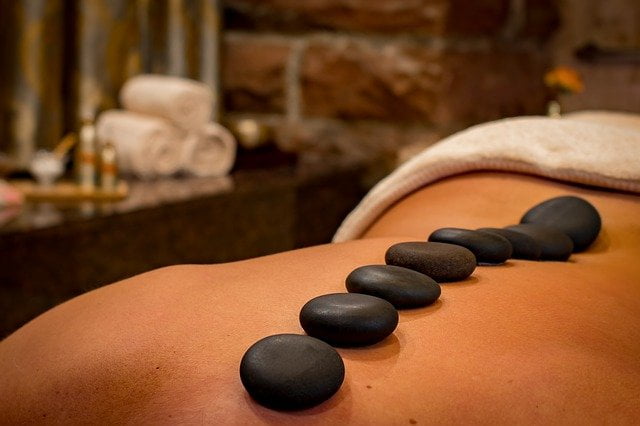
There are many different types of treatment [62] that a person can receive in rehab. Which ones they end up receiving depends a lot on the centre they go to and what their specific needs are.
Below is a list of some of the most common styles:
- Art therapy in Bristol
- Psychotherapy in Bristol
- Hypnotherapy
- Health education
- Cognitive Behavioural Therapy in Bristol
- Dialectical Behavioural Therapy in Bristol
- Group support sessions in Bristol
- Group therapy in Bristol
- Family therapy in Bristol
- 12 Step Programmes in Bristol
- Acceptance and Commitment Therapy in Bristol
- Acupuncture in Bristol
- Brief Intervention in Bristol
- Contingency Management in Bristol
- Drama Therapy in Bristol
- Equine Therapy
- Eye Movement Desensitization and Reprocessing
- Individual Therapy in Bristol
- Mindfulness in Bristol
- Music Therapy in Bristol
- Rational Emotive Behavior Therapy
Cognitive Behavioural Therapy in particular is particularly effective, with a notably low relapse rate [63] regarding addiction recovery, although in some cases of those suffering from certain personality disorders, it may not be appropriate [64].
All of these different treatment styles can help a person overcome their addiction and deal with a variety of other mental health problems.
Many people will continue to receive some forms of these therapies after they leave the rehab centre.
What Happens After Rehab?

What is an Aftercare Programme?
Aftercare is a type of support that a person continues to receive from a rehab centre after they leave the inpatient programme. This is so important as it significantly decreases a person’s chances of relapsing.
According to The United Nations Office on Drugs and Crime [65], aftercare refers to the support and care individuals receive once they leave their initial treatment.
This support will help an individual adapt to everyday life once they leave rehab and will work to increase their confidence when it comes to returning to their community.
Aftercare should be an integral part of anyone’s treatment plan and should utilise all of the skills learnt during initial rehab treatment.
This includes help with managing emotions, managing family relationships, managing finances, making new friends, moving house if necessary and getting a new job if needed.
Aftercare programs are an essential part of anyone’s recovery, as a significant number of individuals go on to relapse if they aren’t supported after leaving drug and alcohol rehab in Bristol.
How Long Does Aftercare Last in Bristol?

Above: Many drug and alcohol rehabs in Bristol allow you to complete a 1-week detox, or a two-to-four week rehabilitation.
Aftercare can range from a number of weeks to months or even sometimes years. How long your aftercare programme lasts depends on how severe your addiction is and how you respond to treatment and aftercare.
Some people respond really well to leaving rehab and entering their aftercare programme, whereas others find that they really struggle with re-entering normal, everyday life.
This is especially the case if you have to make a number of changes in your day-to-day life in order to continue your treatment and remain sober.
How Will I Sustain My Soberness Once I Leave Rehab?
12-Step Programmes support groups or twelve-step programmes to get support from other people with similar problems.
This type of follow-on care is extremely popular and generally successful.
Sober Living Homes provide living accommodation to those transitioning from rehab to the community. They are community-type living complexes supervised by a care lead.
The individual is required to contribute to these communities by paying bills, maintenance work, and abiding by rules and curfews.
Will Your Insurance Cover Rehab?

Above: Many drug and alcohol rehabs, including those in Bristol, allow you to pay for treatment via a policy of health insurance
Yes, you can go through your insurance company to pay for rehab treatment. This allows individuals the chance to gain access to private rehab, without having to pay the high fees associated with inpatient and outpatient private drug and alcohol rehab treatment.
If you want to attend private drug and alcohol rehab but are unable to afford it, then going through your insurance is a great way of getting the help you need without it costing you a small fortune.
However, you should always check your eligibility with your insurance company before attending, as they might not pay out under certain circumstances.
I Can’t Afford Drug and Alcohol Rehab in Bristol – I Don’t Have Insurance. What Can I Do?
Below, we outline some options to assist if you do not have the funds for privately-funded drug and alcohol rehab in Bristol:
1. Ara Recovery For All Bristol, near Bristol
Address: Kings Court, 11 King St, Bristol BS1 4EF
Telephone: 03301340286
Website: https://www.recovery4all.co.uk/gambling-help/get-support/
2. Swan Alcohol Project in Bristol
Address: 1 Fairlawn Rd, Montpelier, Bristol BS6 5JR
Telephone: 01179892521
Website: http://www.theswanproject.co.uk/
3. BDP | Bristol Drugs Project in Bristol
Address: 11 Brunswick Square, St Paul’s, Bristol BS2 8PE
Telephone: 01179876000
Website: http://www.bdp.org.uk/
Going along to local 12-Step programmes like Cocaine Anonymous, Narcotics Anonymous (NA) and Alcoholics Anonymous (AA) can help you to stay sober by sharing your journey with other people in recovery.
The NHS provides free, reliable information for drug and alcohol addictions and dependencies.
Smart Recovery can help you to keep relapse triggers in check and manage your thoughts and feelings.
Al-Anon and Alateen are other organisations that can make addiction easier to navigate for you and friends or family.
Alcohol and drug rehab is led by guidelines set by the American Society of Addiction Medicine, the National Institute for Health and Care Excellence, the National Association for Children of Alcoholics and the NHS Foundation Trust so you are in safe hands with person-centred care.
Find mental health with Rethink Mental Illness, Mind, Young Minds, Samaritans and Papyrus.
Other organisations you can get in touch with are Change Grow Live, Turning Point and We Are With You.
How Can I Refer Myself Into Rehab?

Above: Woman holding a phone at a drug and alcohol rehab in Bristol
The services Rehab Recovery can refer you to are available across Ashley Down, Ashton Gate, Avonmouth, Barton Hill, Bedminster, Bedminster Down, Bishopston, Bishopsworth, Blaise Hamlet, Brentry, Brislington, Bristol, Broom Hill, Broomhill, Clay Hill, Clifton, Coombe Dingle, Cotham, Downend, Eastfield, Easton, Eastville, Filton, Filwood Park, Fishponds, Frenchay, Golden Hill, Headley Park, Henbury, Hengrove, Kingswood, Knowle, Lawrence Weston, Lockleaze, Montpelier, Netham, Novers Park, Redfield, Ridgeway, Southmead, Speedwell, St George, Stockwood, Two Mile Hill, Westbury Park, Whitehall, Yate, and even more towns in and around Bristol.
Contact us today to find out more about your options locally or in your chosen destination. We can help you choose the right place for you or your loved one.
All of the rehabs we recommend are regulated by the Care Quality Commission (England and Wales) or the Care Inspectorate (Scotland).
At rehab you will learn key coping mechanisms and if you require more long-term care, you may be able to access sober living houses in order to maintain sobriety.
At Rehab Recovery, we offer free advice from a team of non-judgemental professionals, many of whom are in recovery and understand how hard it can be to change your relationship with addiction.
For more information about rehab in Bristol, reach out to our 24/7, confidential hotline on 0800 088 66 86.
References
[1] https://www.cdc.gov/alcohol/fact-sheets/alcohol-use.htm
[2] https://pubs.niaaa.nih.gov/publications/arh27-3/209-219.htm
[3] https://www.ncbi.nlm.nih.gov/pmc/articles/PMC4402015
[6] https://www.niaaa.nih.gov/publications/alcohol-and-brain-overview
[7] https://nida.nih.gov/publications/drugs-brains-behavior-science-addiction/addiction-health
[8] https://www.niaaa.nih.gov/publications/brochures-and-fact-sheets/understanding-alcohol-use-disorder
[9] https://www.ncbi.nlm.nih.gov/pmc/articles/PMC3725219/
[10] https://www.sciencedirect.com/science/article/abs/pii/S0031395516369413
[12] https://www.ihs.gov/asap/familyfriends/warningsignsdrug/
[14] https://www.drinkaware.co.uk/facts/health-effects-of-alcohol/mental-health/alcoholism
[15] https://www.cdc.gov/alcohol/fact-sheets/alcohol-use.htm
[16/17] https://www.ncbi.nlm.nih.gov/pmc/articles/PMC6876531/
[18] https://nida.nih.gov/publications/drugfacts/understanding-drug-use-addiction
[19] https://pubs.niaaa.nih.gov/publications/aa22.htm
[20] https://nida.nih.gov/research-topics/recovery
[21] https://drpeeke.com/2015/02/24/pillars-of-recovery-the-three-ms
[22] http://www.drsessa.com/wp-content/uploads/2017/12/NP-6931_corrected.pdf
[23] https://www.womensrecovery.com/womens-rehab-blog/hormonal-shifts-affect-mental-health-and-addiction
[24] https://www.racnj.com/the-five-stages-of-addiction-recovery
[27] https://www.who.int/news-room/fact-sheets/detail/alcohol
[28] https://www.nhs.uk/live-well/alcohol-advice/the-risks-of-drinking-too-much
[30] https://www.healthline.com/health/alcoholism/how-long-does-it-take-to-detox-from-alcohol
[31] https://www.mindtools.com/acd2ov1/what-are-the-halt-risk-states
[32] https://www.alcoholics-anonymous.org.uk/About-AA
[33] https://effectivehealthcare.ahrq.gov/products/alcohol-misuse-drug-therapy/consumer
[34] https://www.aafp.org/pubs/afp/issues/2016/0315/p457.html
[35] https://www.ncbi.nlm.nih.gov/pmc/articles/PMC5614930
[36] https://www.newdirectionsforwomen.org/what-percentage-of-alcoholics-recover
[37] https://nida.nih.gov/publications/drugs-brains-behavior-science-addiction/treatment-recovery
[38] https://www.health.harvard.edu/staying-healthy/11-ways-to-curb-your-drinking
[40] https://www.niaaa.nih.gov/alcohols-effects-health/alcohol-topics/older-adults
[42] https://www.hse.gov.uk/alcoholdrugs/
[43] https://pubs.niaaa.nih.gov/publications/aa63/aa63.htm
[44] https://www.ncbi.nlm.nih.gov/pmc/articles/PMC6241194/
[45] https://iv.iiarjournals.org/content/24/5/761
[46] https://www.ncbi.nlm.nih.gov/pmc/articles/PMC5614930
[47] https://gpsych.bmj.com/content/32/5/e100087
[48] https://scholar.google.com/citations?hl=en&user=VHMpXXIAAAAJ
[49] https://www.ncbi.nlm.nih.gov/pmc/articles/PMC6760428
[52] https://premierneurologycenter.com/blog/neurologic-diseases-associated-with-alcohol-consumption
[53] https://www.verywellmind.com/dsm-5-criteria-for-substance-use-disorders-21926
[54] https://www.asam.org/asam-criteria/about-the-asam-criteria
[56] https://www.ncbi.nlm.nih.gov/books/NBK385382/
[57] https://www.verywellmind.com/the-craft-approach-to-substance-abuse-intervention-5191125
[59] https://www.ncbi.nlm.nih.gov/books/NBK310652/
[63] https://pubmed.ncbi.nlm.nih.gov/32954958


